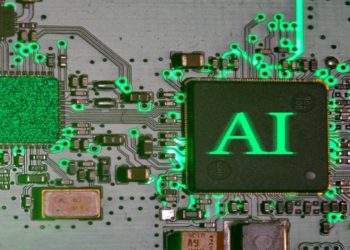The hospitality industry stands at the threshold of a technological revolution that promises to transform how properties operate, serve guests, and manage resources. Smart building technology integration represents far more than simple automation—it’s a comprehensive approach to creating intelligent environments that anticipate needs, optimise performance, and deliver exceptional experiences whilst dramatically improving operational efficiency.
Today’s hospitality guests expect seamless, personalised experiences delivered through invisible technology that enhances rather than complicates their stay. Simultaneously, property operators face mounting pressure to reduce energy consumption, optimise maintenance costs, and improve operational efficiency in an increasingly competitive market. Smart building integration addresses both challenges through sophisticated systems that learn, adapt, and continuously optimise performance.
The convergence of Internet of Things (IoT) sensors, artificial intelligence, machine learning, and cloud computing now enables hospitality properties to create truly intelligent environments where every system communicates and coordinates to deliver superior outcomes. From predictive maintenance that prevents equipment failures to dynamic energy management that automatically optimises consumption, smart building technology transforms operational excellence whilst creating competitive advantages.
At EnviroFWA, our comprehensive experience implementing integrated building systems across the hospitality sector has demonstrated the transformational potential of intelligent technology integration. Properties that embrace smart building approaches today achieve remarkable improvements in operational efficiency, guest satisfaction, and environmental performance whilst positioning themselves advantageously for future technological developments.
The Foundation of Smart Building Integration
Smart building technology relies on comprehensive integration between traditionally separate building systems, including HVAC, lighting, security, fire safety, and energy management. This integration creates intelligent environments where systems communicate continuously, share data, and coordinate responses to optimise both guest experience and operational efficiency.
Building Management System Evolution
Modern Building Management Systems (BMS) have evolved from simple control panels to sophisticated platforms that integrate multiple building systems whilst providing comprehensive monitoring, analysis, and automated response capabilities. These advanced systems serve as the central nervous system for smart building operations.
Mechanical and electrical building systems equipped with smart integration capabilities can coordinate automatically to optimise comfort, efficiency, and safety whilst providing facility managers with unprecedented visibility into system performance and operational patterns.
IoT Sensor Networks throughout properties collect continuous data on occupancy, environmental conditions, equipment performance, and energy consumption whilst providing the real-time information necessary for intelligent system responses and predictive maintenance programmes.
The integration of multiple data streams enables sophisticated analytics that identify patterns, predict requirements, and automatically optimise system operation based on historical performance, current conditions, and anticipated needs.
Artificial Intelligence and Machine Learning
AI and machine learning capabilities transform raw building data into actionable intelligence that continuously improves system performance whilst reducing operational complexity. These advanced technologies enable predictive maintenance, automated optimisation, and intelligent responses that exceed human management capabilities.
Predictive Analytics analyse historical patterns and current conditions to forecast equipment maintenance requirements, energy demand, and operational needs whilst enabling proactive responses that prevent problems before they affect guests or operations.
Machine learning algorithms continuously refine system operation based on performance feedback, occupancy patterns, and environmental conditions, whilst adapting to changing requirements and seasonal variations that affect building performance.
HVAC System Intelligence and Optimisation
Smart HVAC integration represents one of the most impactful aspects of intelligent building systems, enabling dramatic energy savings whilst improving comfort control and system reliability. Advanced HVAC automation coordinates heating, cooling, and ventilation based on real-time occupancy, weather conditions, and predictive algorithms.
Dynamic Climate Control
Air conditioning systems equipped with smart controls can automatically adjust temperature, humidity, and airflow based on occupancy patterns, outdoor conditions, and guest preferences whilst optimising energy consumption throughout varying operational conditions.
Occupancy-Based Control utilises motion sensors, door sensors, and reservation systems to identify occupied spaces whilst automatically adjusting climate control to maintain comfort only where needed. This intelligent approach can reduce HVAC energy consumption by 25-40% compared to traditional scheduling systems.
Zone-based climate management enables precise temperature control in different areas whilst coordinating with other building systems to optimise overall energy consumption and guest comfort throughout properties.
Predictive Maintenance Integration
Smart HVAC systems continuously monitor equipment performance whilst identifying patterns that indicate maintenance requirements before failures occur. This predictive capability prevents uncomfortable temperature conditions and costly emergency repairs during peak occupancy periods.
Planned maintenance programmes enhanced with predictive analytics can schedule maintenance activities based on actual equipment condition rather than predetermined calendars, whilst optimising resource utilisation and system reliability.
Performance Analytics track system efficiency, energy consumption, and comfort delivery whilst identifying opportunities for further optimisation through control adjustments, maintenance activities, or equipment upgrades.
Energy Management and Sustainability Integration
Smart building energy management creates comprehensive optimisation that coordinates all energy-consuming systems whilst integrating renewable energy sources and energy storage to minimise costs and environmental impact.
Intelligent Load Management
Advanced energy management systems can automatically shift energy consumption to optimise utility costs whilst maintaining operational requirements and guest comfort. This intelligent load management becomes particularly valuable with time-of-use electricity pricing and demand charges.
Peak Demand Reduction through automated load shedding and energy storage coordination can significantly reduce electricity costs whilst maintaining essential services and guest comfort during high-demand periods.
The integration of solar energy systems with smart building controls enables automatic optimisation between renewable energy generation, battery storage, and grid consumption whilst maximising self-consumption and minimising energy costs.
Real-Time Energy Monitoring
Comprehensive energy monitoring provides unprecedented visibility into consumption patterns whilst enabling immediate identification of efficiency opportunities and equipment problems that affect energy performance.
Equipment-Level Monitoring tracks individual system consumption whilst identifying inefficient operation, maintenance requirements, and opportunities for operational adjustments that improve energy performance.
Automated energy reporting provides regular analysis of consumption patterns, cost trends, and efficiency opportunities whilst supporting sustainability reporting and regulatory compliance requirements.
Intelligent Lighting and Environmental Control
Smart lighting systems integrate occupancy detection, daylight harvesting, and circadian rhythm considerations to optimise both guest experience and energy consumption whilst supporting operational efficiency and safety requirements.
Adaptive Lighting Management
Intelligent lighting systems automatically adjust intensity, colour temperature, and distribution based on occupancy, time of day, and available natural light whilst supporting guest comfort and operational requirements.
Circadian Lighting programmes can automatically adjust colour temperature throughout the day to support natural sleep cycles whilst enhancing guest wellbeing and satisfaction through biologically appropriate lighting conditions.
Occupancy-based lighting control eliminates energy waste in unoccupied areas whilst providing immediate illumination when spaces are accessed, improving both efficiency and guest experience through responsive environmental control.
Integration with Safety Systems
Smart lighting integration with fire alarm and emergency lighting systems enables coordinated responses during emergencies, whilst providing enhanced wayfinding and safety capabilities during normal operations.
Emergency Response Coordination can automatically adjust lighting to guide evacuation whilst coordinating with other building systems to optimise safety responses and emergency service coordination.
Security integration enables lighting systems to respond to security events whilst supporting surveillance capabilities and deterring unauthorised access through intelligent illumination management.
Water System Intelligence and Conservation
Smart water management systems monitor consumption patterns, detect leaks, and optimise distribution whilst integrating with broader building systems to maximise efficiency and ensure quality throughout properties.
Leak Detection and Prevention
Advanced water monitoring systems can identify unusual consumption patterns that indicate leaks whilst providing immediate alerts that enable rapid response before significant damage occurs.
Water sampling and monitoring programmes enhanced with smart sensors provide continuous quality assessment whilst ensuring compliance with health regulations and guest safety requirements.
Predictive Maintenance for water systems identifies potential problems with pipes, fixtures, and treatment systems whilst scheduling maintenance activities that prevent failures and maintain optimal performance.
Conservation and Efficiency Optimisation
Smart water management can automatically adjust flow rates, temperature, and distribution based on occupancy and usage patterns whilst maintaining guest comfort and operational requirements.
Hot Water Optimisation coordinates water heating with occupancy patterns and renewable energy availability whilst maintaining adequate supply for guest comfort and operational needs.
Integration with legionella risk management programmes ensures that water conservation measures don’t compromise safety whilst maintaining optimal water quality throughout distribution systems.
Kitchen and Food Service Automation
Smart building integration extends to commercial kitchen operations where intelligent systems can optimise equipment operation, monitor food safety, and coordinate with building systems to maximise efficiency whilst maintaining quality standards.
Equipment Monitoring and Optimisation
Commercial kitchen ventilation systems equipped with smart controls can automatically adjust extraction rates based on cooking activity whilst coordinating with HVAC systems to optimise building-wide air management.
Refrigeration Intelligence enables automatic temperature adjustments based on occupancy, menu requirements, and energy costs whilst maintaining food safety standards and coordinating with broader energy management systems.
Equipment performance monitoring identifies maintenance requirements and operational optimisation opportunities whilst preventing failures that could disrupt food service during peak periods.
Food Safety and Quality Management
Smart sensors throughout kitchen operations monitor temperature, humidity, and air quality whilst providing automatic alerts for conditions that could affect food safety or quality.
HACCP Integration with smart monitoring systems provides continuous verification of critical control points whilst maintaining comprehensive documentation for regulatory compliance and quality assurance.
Predictive analytics can identify patterns that indicate potential food safety risks whilst enabling proactive responses that prevent problems before they affect guests or operations.
Guest Experience Enhancement Through Intelligence
Smart building systems create personalised guest experiences through technology that learns preferences, anticipates needs, and automatically adjusts environments whilst maintaining privacy and comfort throughout properties.
Personalised Environmental Control
Advanced guest room systems can learn individual preferences whilst automatically adjusting temperature, lighting, and air quality based on occupancy patterns and stated preferences without requiring complex guest interaction.
Mobile Integration enables guests to adjust environmental conditions through smartphone applications whilst providing properties with valuable data about guest preferences and usage patterns.
Voice control and gesture recognition enable intuitive interaction with room systems whilst supporting accessibility requirements for guests with diverse needs and abilities.
Predictive Service Delivery
Smart systems can anticipate guest needs based on reservation data, historical preferences, and current behaviour patterns whilst coordinating service delivery to exceed expectations through proactive attention.
Maintenance Coordination ensures that predictive maintenance activities occur during unoccupied periods whilst minimising guest disruption and maintaining optimal system performance throughout properties.
Energy optimisation in guest areas balances comfort with efficiency whilst automatically adjusting systems based on occupancy and preferences without requiring guest attention or compromise of comfort.
Maintenance Revolution Through Predictive Intelligence
Smart building technology transforms maintenance from reactive repairs to predictive optimisation that prevents problems whilst optimising resource utilisation and system performance throughout properties.
Condition-Based Maintenance
IoT sensors throughout building systems continuously monitor performance whilst identifying trends that indicate developing problems before they cause failures or affect guest experience.
Equipment Health Monitoring tracks vibration, temperature, energy consumption, and other performance indicators whilst predicting maintenance requirements based on actual condition rather than predetermined schedules.
Electrical maintenance programmes enhanced with smart monitoring can identify developing electrical problems whilst scheduling maintenance activities that prevent failures and maintain system safety.
Resource Optimisation
Predictive maintenance enables optimal scheduling of maintenance activities whilst coordinating with operational requirements to minimise disruption and maximise resource utilisation.
Inventory Management integration ensures that required parts and materials are available when needed, whilst minimising inventory costs through accurate prediction of maintenance requirements.
Contractor coordination systems can automatically schedule maintenance activities whilst providing contractors with detailed information about system conditions and required work.
Security Integration and Access Control
Smart building security systems integrate physical access control with cybersecurity measures whilst providing comprehensive protection that adapts to changing threats and operational requirements.
Intelligent Access Management
Advanced access control systems utilise multiple authentication methods whilst providing seamless access for authorised individuals and comprehensive security for sensitive areas throughout properties.
Guest Access Integration coordinates room access with reservation systems whilst providing temporary access codes and monitoring unusual access patterns that could indicate security concerns.
Staff access control integrates with human resources systems whilst providing appropriate access levels and monitoring capabilities that support both security and operational efficiency.
Threat Detection and Response
Smart security systems analyse patterns and behaviours whilst identifying potential threats and coordinating appropriate responses through integration with other building systems and emergency services.
Cybersecurity Integration protects building systems from digital threats whilst maintaining network security and preventing unauthorised access to building controls and guest information.
Emergency response coordination enables automatic coordination between security, fire safety, and building systems whilst supporting law enforcement and emergency service responses.
Implementation Strategy: Building Intelligence Systematically
Successful smart building integration requires careful planning that addresses immediate priorities whilst creating foundations for long-term technological evolution and system expansion.
Assessment and Infrastructure Development
Comprehensive smart building programmes begin with thorough assessment of existing systems, infrastructure capabilities, and integration opportunities whilst identifying optimal technology solutions and implementation strategies.
Network Infrastructure requirements for smart building systems include reliable communications, adequate bandwidth, and cybersecurity measures that support current needs while enabling future expansion and technology integration.
Professional assessment ensures that existing building systems can support smart integration whilst identifying upgrade requirements and compatibility considerations that affect implementation strategies.
Return on Investment: Quantifying Smart Building Benefits
Smart building technology integration delivers measurable returns through multiple benefit streams, including energy cost reduction, maintenance optimisation, operational efficiency improvements, and guest satisfaction enhancement.
Energy and Operational Cost Savings
Comprehensive smart building integration typically reduces energy consumption by 20-35% whilst optimising maintenance costs through predictive approaches that prevent expensive failures and extend equipment life.
Utility Cost Reduction through demand management, load optimisation, and renewable energy integration can deliver annual savings of £15,000-£40,000 for typical hotel properties, depending on size and current efficiency levels.
Maintenance cost optimisation through predictive approaches typically reduces maintenance expenses by 25-35% whilst improving system reliability and extending equipment lifecycles.
Revenue Enhancement Opportunities
Smart building capabilities support premium positioning whilst enhancing guest satisfaction through superior comfort control, personalised environments, and seamless technology integration that exceeds guest expectations.
Operational Efficiency improvements enable staff to focus on guest service whilst reducing time spent on routine monitoring and maintenance activities that can be automated through smart building systems.
Competitive differentiation through advanced technology and sustainability features appeals to corporate clients and discerning guests whilst supporting premium pricing and improved occupancy rates.












































































